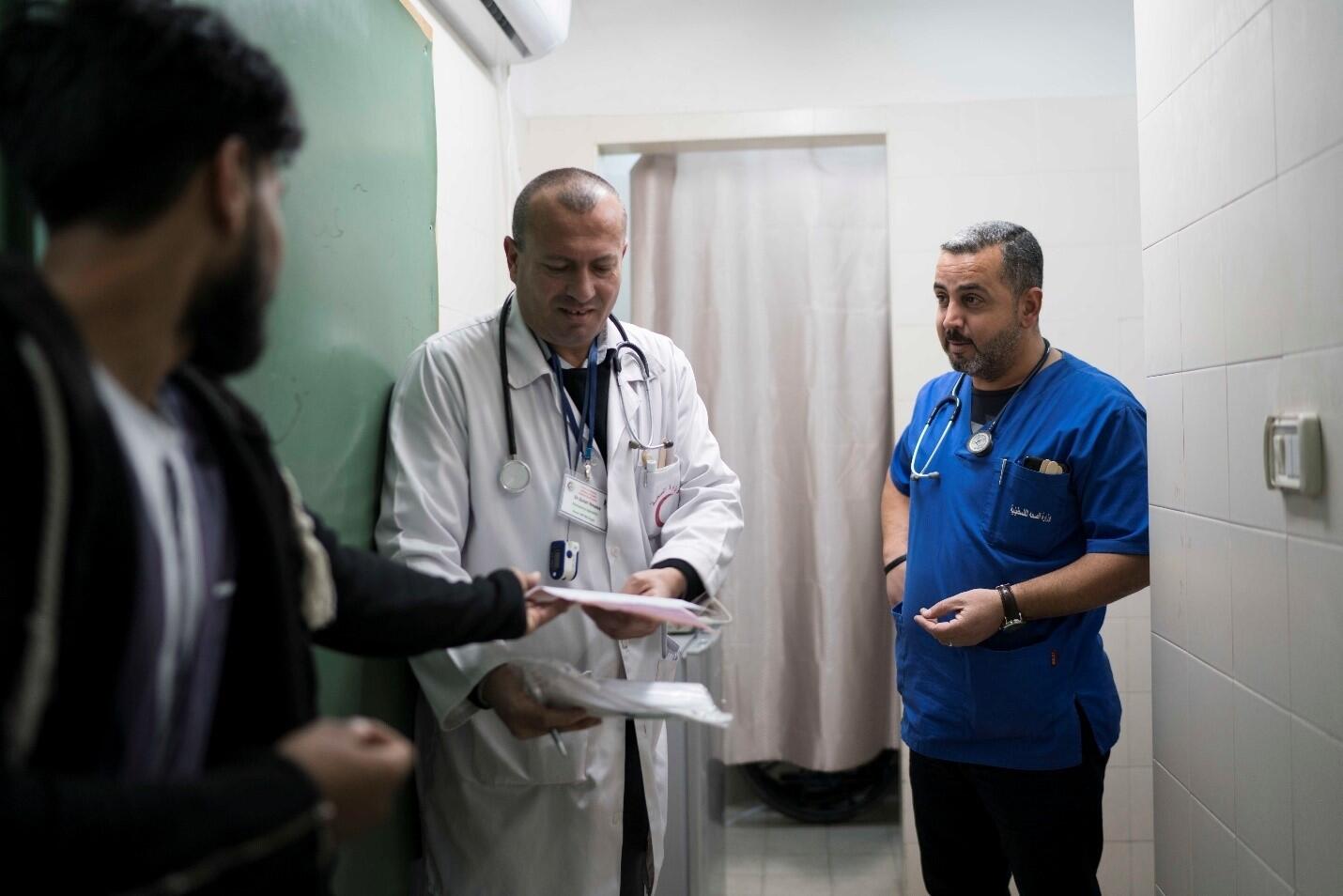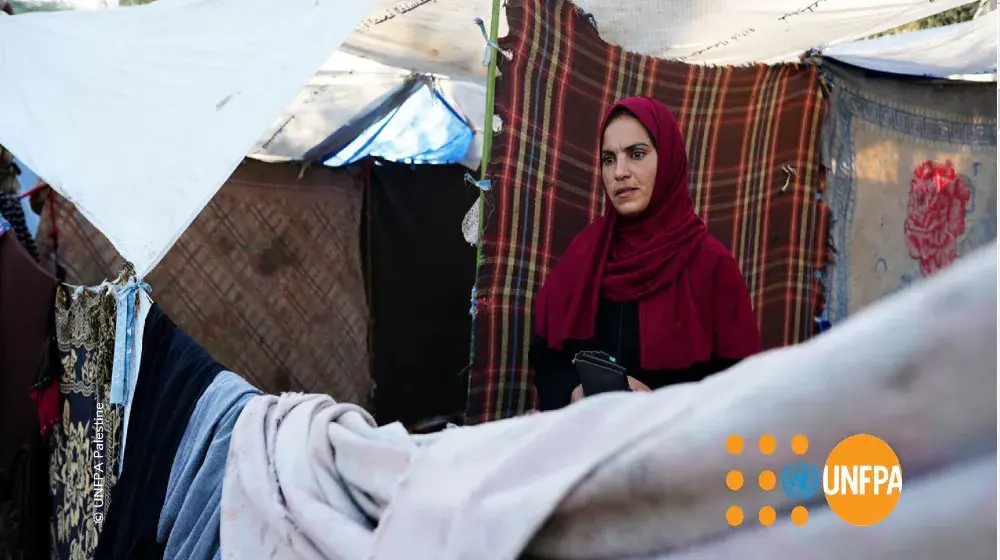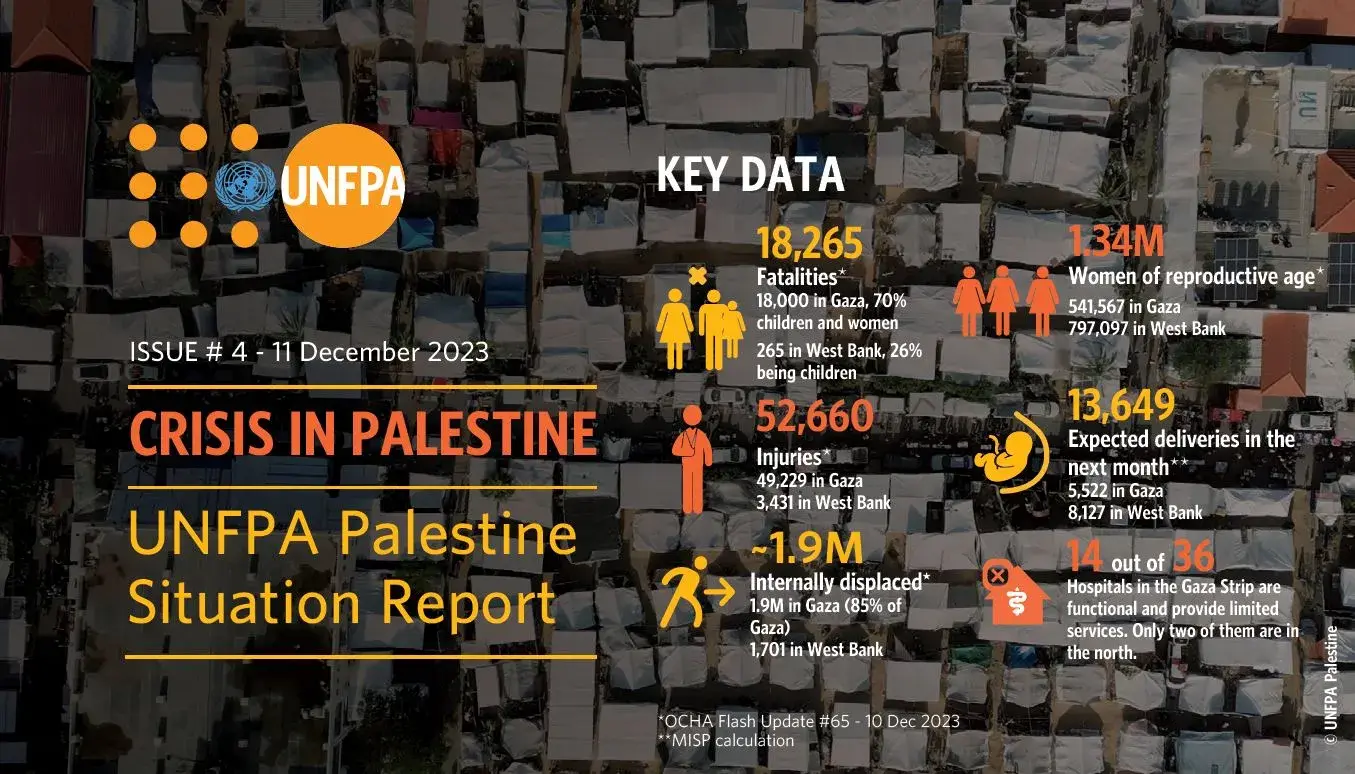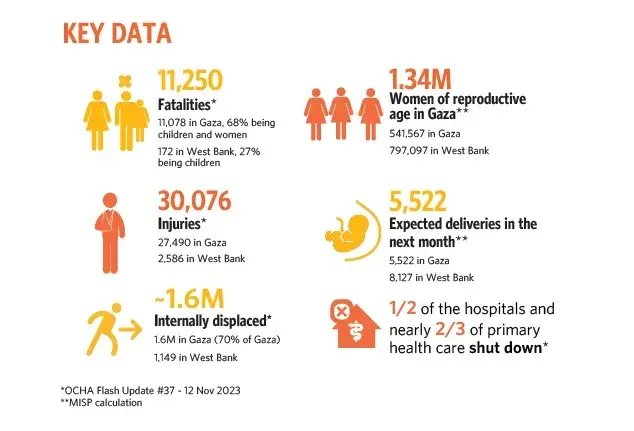Globally, 243 million women and girls have suffered sexual or physical violence by an intimate partner in the past year alone, a situation further exacerbated by the COVID-19 pandemic. A 2019 survey of prevalence of gender-based violence in Palestine showed that one in three women are subjected to violence by their husbands, with more than half of these seeking any assistance, according to a survey which was conducted by the Palestinian Central Bureau of Statistics. Since the outbreak of the pandemic, gender-based violence (GBV) service providers have reported a drastic increase in demand for their services, and in particular, for psychosocial counselling and assistance with severe GBV cases. Lockdown measures have meant that many women were at home with their abusers, and with no help available, the social and economic impacts of the pandemic further created financial pressures and tensions which all too often led to an escalation of violence in the home.
Quarantine and confinement measures have further increased the risks and severity of violence experienced by women and girls. In response to such cases, four GBV rooms have been set up in four quarantine centres to offer help to survivors of violence who are infected by the virus, and they were provided information through social media on how to seek help and GBV services during the COVID-19 pandemic.
Through the HAYA Joint Programme which is funded by the Government of Canada, UNFPA works closely with UN Women, UN-Habitat and UNODC to eliminate violence against women in West Bank and Gaza Strip. “As in many parts of the world, there is violence in Palestine, but sometimes it is hidden,” says Maha Awwad, General Director of Women’s Health and Development Department at the Ministry of Health in Palestine. “Not all women choose to speak up, due to social and cultural practices and beliefs”, referring to the profound stigma that survivors of intimate partner violence often face.
Even before the global coronavirus pandemic, there was a need to establish “GBV rooms” at hospitals. These facilities provide health services to women and girls subjected to violence. Palestine has been one of the first countries to adopt such GBV rooms. In 2015, with support from the UNFPA, the Palestinian Ministry of Health established such rooms in its hospitals and primary health care directorates in the West Bank, and one in Al Shifa Hospital in the Gaza Strip. GBV rooms have dedicated personnel who ensure privacy, confidentiality, and protection of survivors who seek medical, social and psychological services.
A doctor is often the first entry point for women facing violence, as a medical visit can be easier to explain. “While it is socially accepted for women in Palestine to seek care at a health clinic in cases of violence, this is not necessarily the case when it comes to reporting to the police,” explains Ms. Awwad. Located near the emergency rooms, GBV rooms allow survivors of violence a way to seek treatment. This means that health care providers must be skilled at identifying GBV cases and at referring them to additional services they may require. GBV focal points assess whether the case should be transferred to the police, to the Ministry of Social Development for psychological services, and if needed, to be transported to a shelter. The confidentiality and privacy these rooms provide further encourage survivors of violence to seek assistance. “Privacy was not ensured before. Whenever a woman would come in, she was surrounded by doctors, nurses, staff, and everyone would know about her case, even if she experienced violence or had a family issue,” Ms. Awwad added.
Through the HAYA Joint Programme, UNFPA has been partnering with the Palestinian Ministry of Health to provide essential equipment and furniture for the GBV rooms. In addition, the programme has trained emergency staff and GBV focal points in the Ministry of Health, to ensure that their attitudes and behaviours towards victims of violence create a safe and comforting comfortable environment. A manual with standard operating procedures was created. Furthermore, the HAYA Joint Programme continuously advocates for GBV to be considered a priority issue within the Palestinian Government National Agenda.
“Including gender-based violence in health facilities is a step towards protection and prevention of GBV,” says HAYA Joint Programme Manager Hazam Tahbub. “HAYA sees it is essential to support GBV rooms at different levels, which provide both medical attention and counselling services to GBV survivors.”
Twenty-five-year-old Amina* was one of many women who received support through the GBV rooms. After been subjected to physical, verbal, sexual, and economic violence by her husband for five years, Amina sought help from her local clinic and was taken to their GBV room where she received medical and psychological services and was supported to seek legal counseling to regain custody of her children. Empowered, Amina went on to use her cooking skills to start her own business and make a living. The GBV focal points continue to check on her to ensure she is doing well.
“There is a great improvement in the services provided to women survivors thanks to the GBV rooms, especially in terms of privacy and confidentiality,” says Ms. Awwad. Nonetheless, there is still space for growth. Raising awareness on the existence of these GBV rooms and their services is still much needed. There is also the risk that if more people became aware of the existence of these GBV rooms, cultural barriers and perpetrators might hinder women accessing health clinics and facilities.
In the ongoing fight to end GBV, these rooms are another step forward for survivors of violence. Providing a safe space where survivors can receive help, these rooms are vital in the protection of their health and their dignity.
|
*Name changed to protect survivor privacy and confidentiality.





